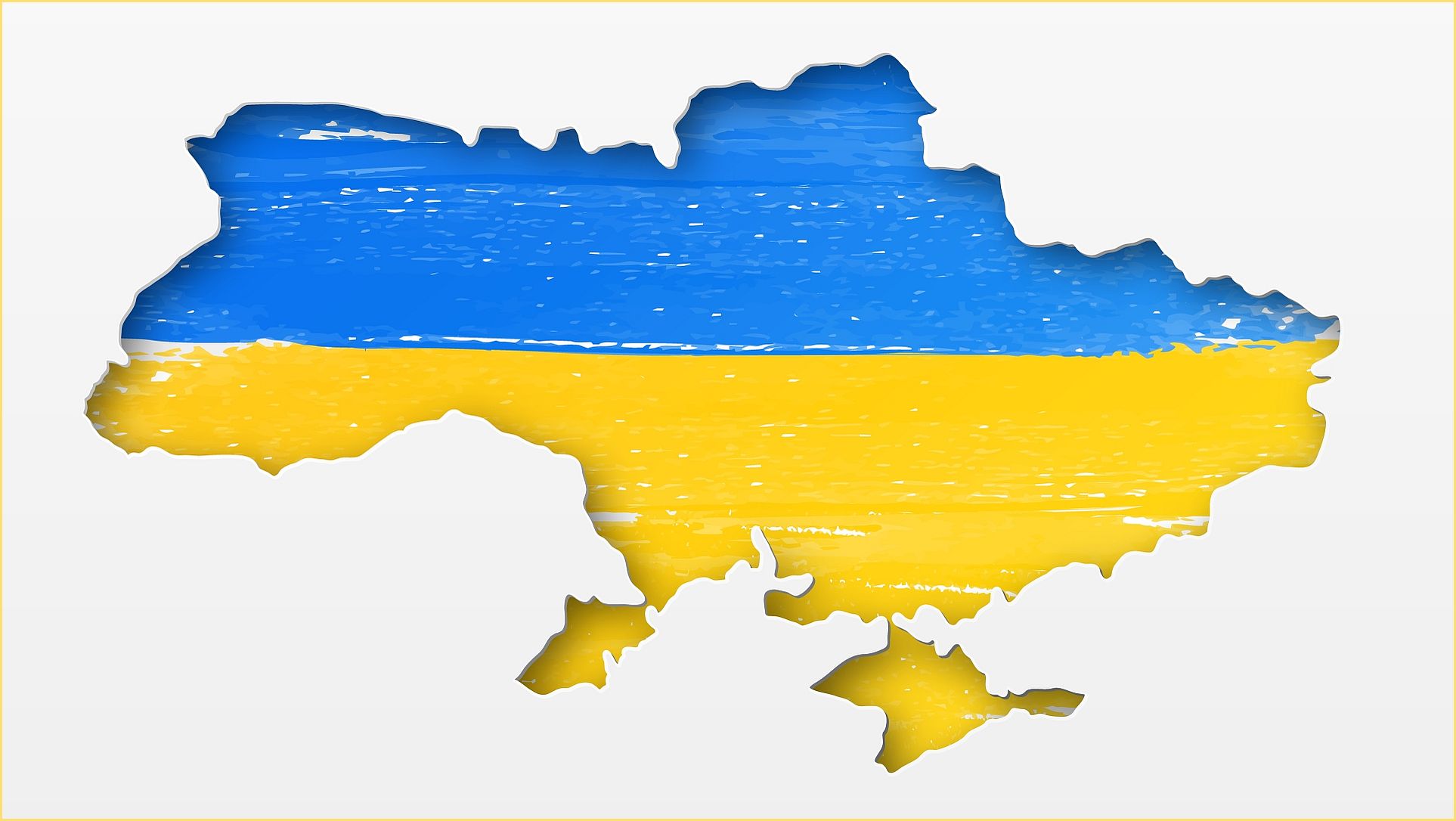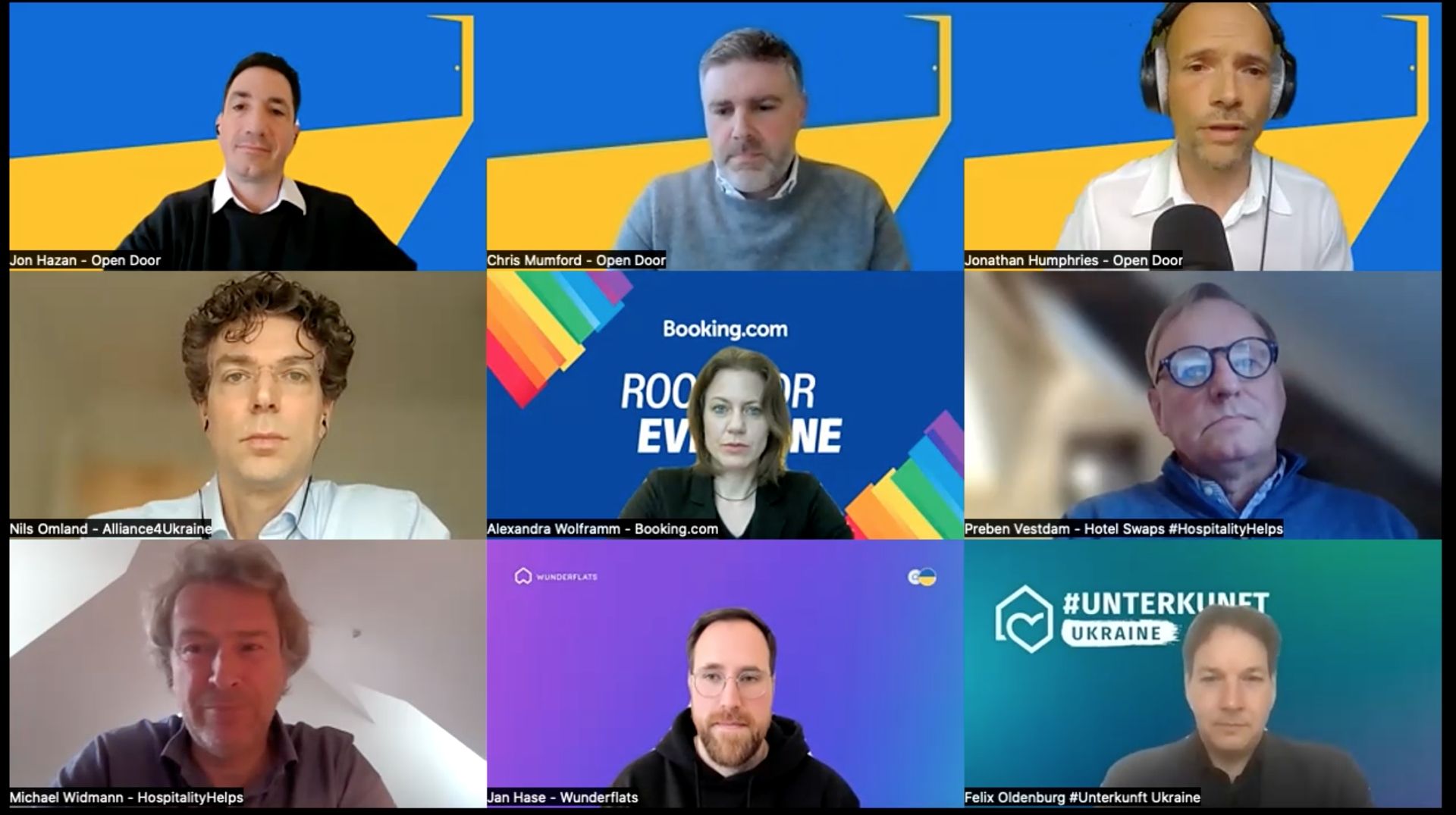Help in need: Hotel initiatives programmed booking platforms overnight
 |
| The war could not be prevented, but there is a great willingness to help throughout Europe. More than ever, everything is needed: rooms, apartments, money, manpower. / Photo: adobe stock lauritta |
Augsburg (April 8, 2022). When the war broke out in Ukraine six weeks ago, initiatives in the hospitality industry were quickly set up across Europe and booking platforms were programmed. These offer beds along the refugee routes, apartments and now also apartments for longer stays. Even Booking.com is joining in. All the initiators have worked day and night as volunteers and have had other experiences.
"We are now in a situation where you don't have to reinvent the wheel and you don't have to build your own platform, but you can join or support existing ones," was Nils Omland's message last week at the webinar of the initiative "Open Door". This wants to bundle actions from the hospitality industry for refugees from Ukraine. Jonathan Humphries and Chris Mumford from the Swiss consultancy HoCoSo are behind it, together with Jon Hazan from the event specialist Atlas Events.
The Open Door Initiative met virtually for the first time to explain to trade media how they often got entire booking platforms up and running overnight, within two weeks.
Nils Omland from Alliance4Ukraine started with his story: one day after the outbreak of war, he founded the initiative, initially under the name Project Together. Twelve people have since been taking care of a range of relevant refugee issues such as accommodation, medical and physical care, legal counselling, translation, job placement, etc. Alliance4Ukraine tries to bring all actors and different initiatives together and organises "matching calls" to support each other.
Alliance4Ukraine does not refer individual private persons or coordinate their support, but focuses on specific support from organisations, foundations and companies. https://alliance4ukraine.org/
Hospitality Helps, founded by Michael Widmann and Christian Walter of PKF hotelexperts Vienna, started because Widmann's Ukrainian family was affected. "Half of my family is from Germany and half from Ukraine, and we had actually anticipated this war and moved out with our entire family two or three weeks before the war started," he reports.
PFK also employs 22 people in its office in Kiev. When the war began, "which we expected but which shocked us nonetheless", the two hotel consultants started a Europe-wide network of hotels, which now counts more than 500 hotels in about 50 countries. Among them are mainly Anglo-Saxon, but also national chains such as Marriott, Hilton, IHG, Radisson, Accor, Dorint and Ruby. "Everyone joined in as quickly as they could and are fully on board. The initiative is working well. Unfortunately, it's working too well," he says.
 |
|
| Ukraine aid in a big round: Within the framework of the "Open Door Initiative", several hospitality initiatives want to bundle their activities. / Photo: Konzack |
"One thing I am grateful to Covid-19 for is that we have learned what exponential growth is," Widmann says. Translated into the dimension of refugees, this means: about 10,000 people can be accommodated every day at the moment, "but we would need 100,000 to 200,000 per day". That's why a lot more rooms are needed, as well as financial resources, programmers, people who help out. The condition for everyone in the cooperation is that this is done free of charge, completely without refunds. https://hospitality-helps.org/en/home
Room exchange now for refugees
From the beginning, the goal of Hospitality Helps was to organise on a large scale. Widmann therefore also contacted Preben Vestdam, founder and CEO of the software company Hotel Swaps. He already had a reservation system where hotels can load rooms into a system and guests book them with the currency "hotel coins". "It's an exchange platform for people who own hotels to share rooms with each other," he reports. https://www.hotelswaps.com/
Within three sleepless days, he transformed the system with his team and a lot of help from STR, PKF etc. into a reservation platform for hotels and refugees to get a room there for free. "Normally it would take me a month," he says.
People with Ukrainian passports or residence permits can become members and immediately receive five hotel coins, which they in turn can use to book the rooms. "Groups like Hilton, Marriott, Accor and IHG held webinars with their general managers and franchisees at the same time and encouraged them to join," Vestdam says.
Over 100,000 overnight stays have been generated via the platform so far. Permanently, between 20,000 and 50,000 overnight accommodations are available. "It's really a tool that people can use when they arrive in a city to see what's available," he says with relief. "Many already go to hotels and ask if there is a room available. The hotel can then say, we are a member of this platform, go in and check, we don't have any other rooms in there." Every member can freely see who is offering something here and where, and likewise refer to colleagues locally.
Booking.com also reported on its refugee assistance in the webinar. In the first days, the Amsterdam office had set up a special rate for refugees, which was integrated into their own booking platform. Ten of the most affected countries participated, including Germany, Austria and Poland. Last week, Booking expanded the system to 21 countries and extended it until provisionally 30 June 2022, informs Alexandra Wolframm, Head of Public Affairs and Government Relations for the DACH region at Booking.com.
Hotel partners can offer the rooms free of charge or, if their own economic situation does not allow it, at a refugee rate reduced by up to 50%. For Hilton, which provides one million rooms for UN refugee organisations, among others, Booking has set up a channel for room distribution that is not open to the public. https://partner.booking.com/en-gb/help/rates-availability/extranet-calendar/supporting-refugees-ukraine
Thinking beyond acute bookings is Wunderflats. This company focuses on temporary rentable apartments and sees itself as an assistance platform for private individuals seeking longer-term solutions. With the outbreak of the war, the team around founder Jan Hase first activated their own landlords to provide apartments free of charge. In addition, private individuals could offer their apartments for at least one month.
Currently, Wunderflats has arranged around 400,000 overnight stays in almost 20,000 apartments, many of them for six months or more. So far, 70% were free of charge, the rest were provided for a low rent or unlimited. "We have 4-room apartments on offer for 250 euros and did not expect such a mass of apartments to be offered at such low prices," says Jan Hase. "But the same is true for us as for everyone else: We are running out of capacity. We still have about 50,000 open enquiries from refugees and only 7,000 apartments that we can offer. That's why we're also in talks with other initiatives to pool efforts." https://wunderflats.com/page/ukraine/home-en
Wunderflats has already cooperated with the apartment alliance EveryBedHelps, which also wants to get involved as part of the Open Door initiative, through its booking platforms and on first aid issues. Florian Wichelmann from Nena Apartments founded the initiative and currently unites over 60 serviced apartment providers in Germany. Many apartments are also made available for several weeks. The stories of escape that numerous operators witness first-hand range from pregnant woman who urgently needed shelter to refugees who learned a few days after their arrival that parts of their family had just been killed by a mine. As a result, some families have also taken them home privately.
The now largely automated mediation takes place with partners such as Apartmentservice.de and Apaleo; at the same time, refugees can also book apartments directly through many providers via voucher solution free of charge.
https://everybedhelps.com/#/booking/search
EveryBedHelps also works with Gut.org and thus #Unterkunft Ukraine. This is both in contact with the refugees and via a donation platform, which is also intended to finance follow-up accommodation – one of the big challenges in the next few weeks, when the travel season rolls around and hotels are booked well again and understandably have to generate turnover due to the Corona crisis.
Behind #Accommodation Ukraine are founders Lucas Kunert and Felix Oldenburg as Founder of gut.org. "We are not really part of the hospitality industry, at least we weren't four years ago, I had absolutely nothing to do with real estate and accommodation and hospitality," says Oldenburg. The war changed that at the latest.
Through gut.org as a non-profit holding company, more than 10,000 free private accommodations have been offered so far. 370,000 offers of free private accommodation have been mobilised and more than 10,000 people have been temporarily accommodated in private apartments. Currently, #Unterkunft Ukraine is trying to make the system even more abuse-proof and to cooperate with aid organisations in every region in Germany. "They should use our offer as a source of data," he says. The initiative itself has already cooperated with Alliance4Ukraine, Booking.com or Wunderflats in this sense. https://unterkunft-ukraine.de/
Many tasks remain for all
What is challenging now is that there are still too few accommodation offers for a growing number of requests. "What is also frustrating for us here is that it is very difficult to work with the local hotel associations. They want to impose their own ideas and only focus on their own things, for whatever reason. They are not able to develop a more solid international response," says Widmann from HospitalityHelps.
What is also difficult is that there are always cases where the system is abused. "But of course: it is better to do something, no matter how imperfect it is, than nothing," also stresses Vestdam.
The challenge in the coming weeks will be to provide sufficient follow-up accommodation, as well as physical and psychological care, education – and jobs, because many Ukrainians want to work. It is important that more regions and countries are involved in refugee assistance in order to take pressure off many capacity bottlenecks on the ground. And all this "with some fatigue", which Hase from Wunderflats already sees. "In the first few days, many private individuals offered their houses. We notice that this is decreasing very quickly," he says.
Still, "the long-term vision that is emerging is that there really is a new commons here," finds Oldenburg of Gut.org. "Imagine what this huge number of people who have agreed to open their doors and homes could do in future crises. But for that to be possible, we first have to manage the enormous complexity of the current response."
And in the future, this must also mean looking more at other crises and refugees, Widmann thinks. "Let's face it, one of the first criticisms of any aid was: you're helping the blond, blue-eyed Ukrainians. Why don't you help the Afghan and Syrian refugees? And I think that's a fair criticism to a certain extent. You have to look in the mirror a little bit. Are we always as helpful as we are now? I think we have to deal with bigger problems in the world. But you can't tackle all the problems in the world at the same time. That is why we are focusing on this initiative and not discriminating." / Sylvie Konzack
To print this article you have to be registered and logged in for newsletter, visitor or subscription.





